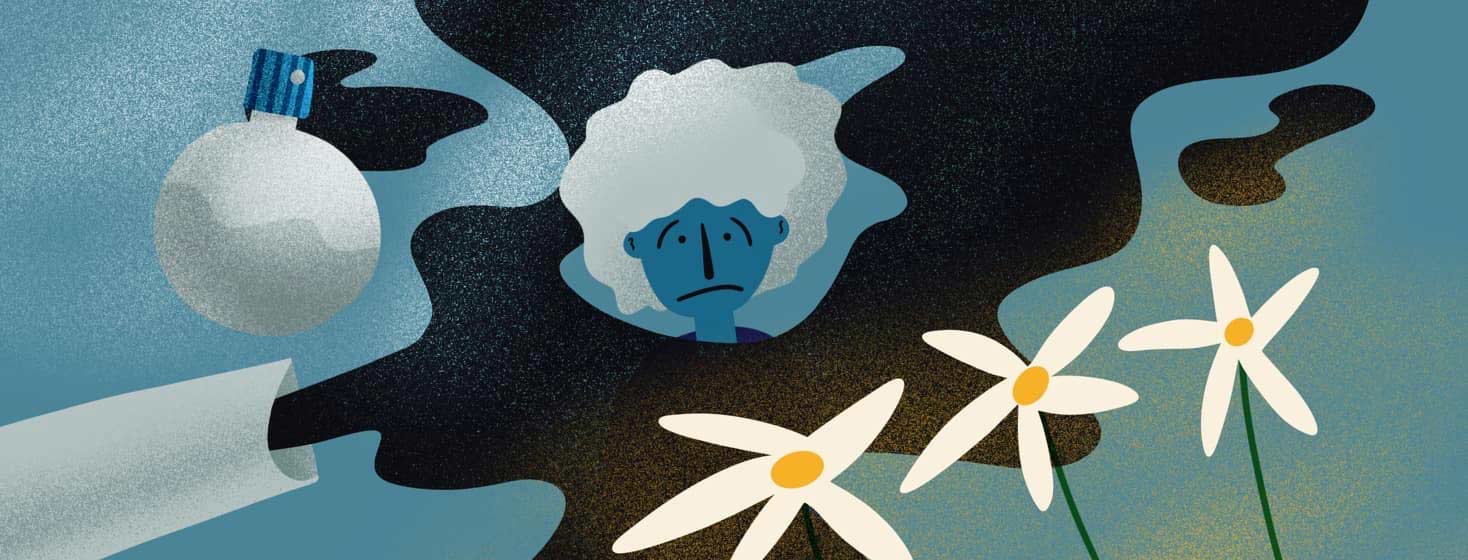COPD Triggers
Reviewed by: HU Medical Review Board | Last reviewed: November 2022 | Last updated: December 2025
Chronic obstructive pulmonary disease (COPD) is a chronic lung disease. This means that if you have COPD, you will have to manage it for the rest of your life. COPD causes blocked airways and makes breathing difficult. One important part of managing COPD is avoiding triggers.1
What are COPD triggers?
A COPD trigger is something that makes your symptoms worse. They may also cause flare-ups, or exacerbations, of your condition as a whole.1,2
A COPD exacerbation is a period when symptoms are worse than usual. Exacerbations can be serious and may require emergency care.1
What are some possible triggers?
Triggers may be different for everyone. One of the best ways to manage COPD and prevent flare-ups is to avoid your unique triggers. Some common triggers include:2-4
- Cigarette or tobacco smoke
- Weather
- Allergens
- Illnesses
- Cleaning products
- Air pollution
Cigarette or tobacco smoke
Smoking is the top cause of COPD in the United States. Quitting smoking is the best thing you can do to treat COPD. If you do not smoke, do not start. You should also try to avoid secondhand smoke. Any type of tobacco smoke can harm your lungs, even if you are not the one smoking.1,3
Weather
The weather can affect your lung health. Extreme hot and extreme cold can make breathing harder. High humidity also can be harmful. Try to avoid going outside in extreme temperatures. If you have to go out when it is very cold, cover your nose and mouth with a scarf. This helps warm the air you breathe.1,3
Allergens
Exposure to allergens can be harmful for people with COPD. Allergens are the things that trigger allergic reactions. They can include:3
- Dust
- Pet dander
- Mold
- Pollen
Try to vacuum often and keep your house clean to reduce allergens. Reduce clutter that can also collect dust in your home. During allergy season, avoid going outside when pollen counts are high.3
Illnesses
Illnesses are one of the most common causes of COPD exacerbations. You cannot control when you get sick, but you can take steps to lower your risk of illness. These steps include:2,3
- Staying up to date on vaccines like the flu or pneumonia
- Avoiding people who are sick
- Washing your hands frequently and thoroughly
- Avoiding crowds during cold and flu season
Cleaning products and fragrances
Harsh cleaning products can trigger COPD. Try switching to natural, nontoxic cleaning products.3
Strong smelling, fragranced products like perfumes, hair sprays, scented candles, and air fresheners also can be harmful. Try to avoid these products when possible.3
Air pollution
Air pollution and bad air quality can make breathing hard for many people. Air pollution can come from factories, cars, smoke, or other fumes. Check the air quality before you go outside. If the quality is bad, consider changing your plans.1,3
The air quality inside your home can also affect COPD symptoms. If you have a fireplace, the smoke it produces can hurt your lungs. Cooking and chemical fumes can also build up in your home. Make sure your house is well-ventilated.1,3
Managing triggers
The list above does not include all the possible COPD triggers. Try to notice the things that affect your COPD. These may be triggers for you.3,5
Avoiding triggers is the best way to prevent exacerbations. But this is not always possible.
Talk to your doctor about a plan to manage exacerbations and triggers. They may recommend that you carry an inhaler or use other preventative treatments.1,5

Join the conversation